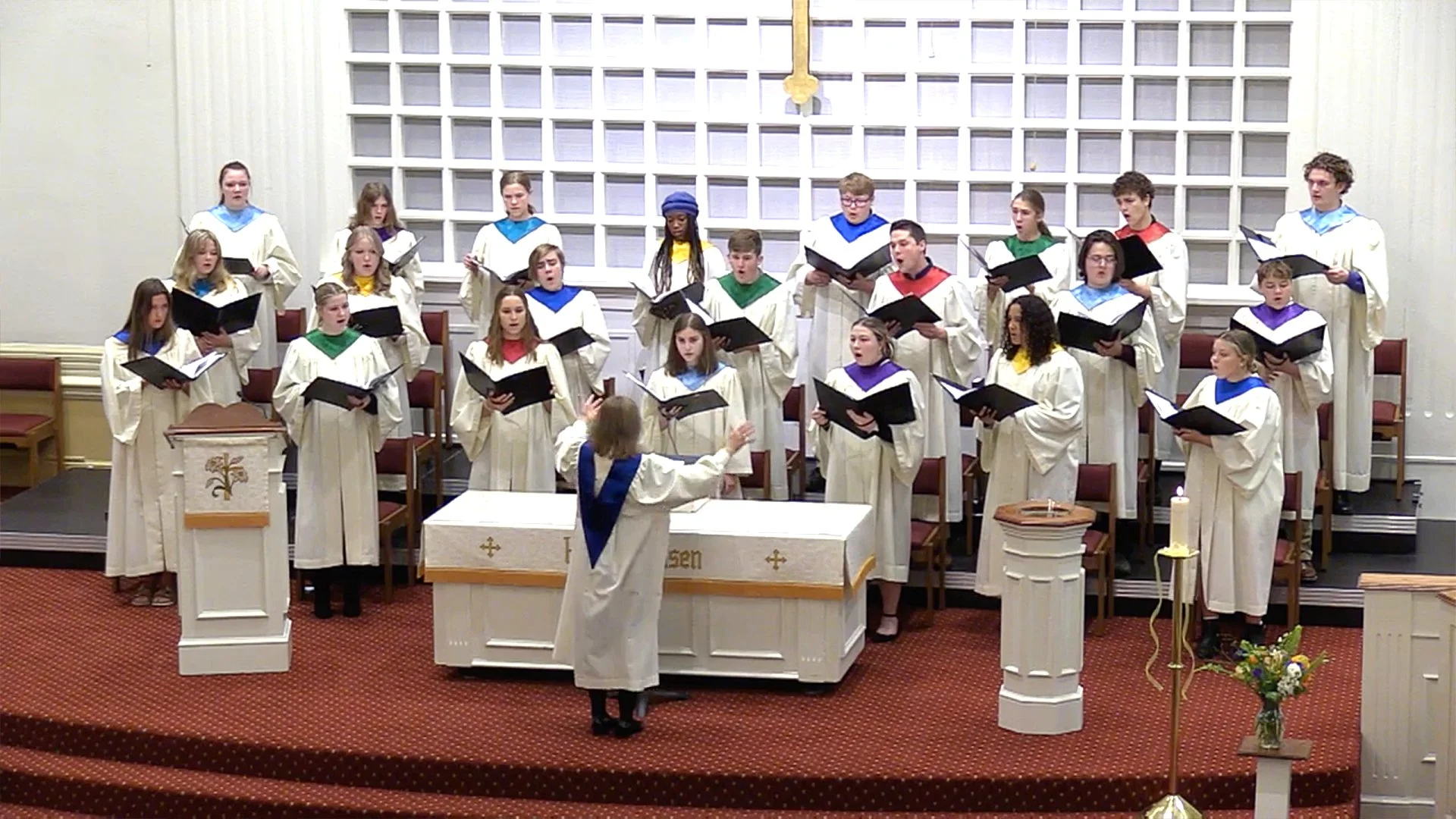Hymn of the Week: February 13, 2023
I Love Thy Kingdom, Lord
Glory to God Hymn 310
Text Timothy Dwight 1800
Music The Universal Psalmodist 1763
I love thy kingdom, Lord,
the house of thine abode,
the church our blest Redeemer saved
with his own precious blood.
I love thy church, O God.
her walls before thee stand,
dear as the apple of thine eye,
and graven on thy hand.
For her my tears shall fall;
for her my prayers ascend;
to her my cares and toils be given,
till toils and cares shall end.
Beyond my highest joy
I prize her heavenly ways:
her sweet communion, solemn vows,
her hymns of love and praise.
Sure as thy truth shall last,
to Zion shall be given
the brightest glories earth can yield,
and brighter bliss of heaven.
Hymn Texts: A Devotional
Dwight is perhaps best known for his grandfather, Jonathan Edwards, but he had fame in his own right.
Timothy Dwight
Graduating from Yale University at seventeen, Dwight became a tutor at his alma mater in 1769. He served as a chaplain under George Washington during the Revolutionary War and wrote songs and sermons for the men in his regiment. When Dwight returned from military service in 1778, he became a successful farmer, a Congregational minister at Greenfield, Connecticut, a state legislator, and a member of the faculty at Yale, where he was named president in 1795. He not only raised academic standards but also began a spiritual revival, which spread to other institutions in New England.
Dwight also was one of the first American hymn writers. He wrote 33 hymns, with the one for this week perhaps being his best known. It was published in 1800 at the beginning of the Second Great Awakening as part of an edition of Watts’ Psalms, which he edited at the request of the Congregational General Association of Connecticut. Dwight’s edition was arranged to reflect the characteristic theological persuasion of American evangelical Calvinists like his own Congregationalist denomination and their Presbyterian allies. Dwight’s version was no longer simply the Christianized rendering of the Hebrew psalter that Watts had originally conceived nearly a century earlier. This new edition had become instead an instrument of evangelism designed to persuade the unregenerate and to comfort the converted.
This hymn was intended to be an interpretation of Psalm 137:
By the rivers of Babylon—
there we sat down and there we wept
when we remembered Zion.
On the willows there
we hung up our harps.
For there our captors
asked us for songs,
and our tormentors asked for mirth, saying,
“Sing us one of the songs of Zion!”
How could we sing the Lord’s song
in a foreign land?
If I forget you, O Jerusalem,
let my right hand wither!
Let my tongue cling to the roof of my mouth,
if I do not remember you,
if I do not set Jerusalem
above my highest joy (NRSV).
The writer Rachelle Stackhouse points out that this hymn and Psalm 137 do not, in fact, have much to do with each other. Dwight had a theo-political point to make in this hymn, and the biblical Psalm in its lament for Zion gave him the opportunity. The biblical Psalmist weeps for a nation-state, a city, and a temple; Dwight celebrates an ecclesiastical institution. In his valedictory address to the students at Yale in 1776, Dwight wrote: “we have the best foundation to believe that this continent will be the principle seat of that new kingdom.” Dwight believed that the means for establishing this kingdom of God in America included “preaching and hearing the word, reading scripture, prayer, correspondence with religious men, religious meditation, and the religious education of children,” all of which applied to everyone, regardless of church affiliation or participation.
The Tune…
for this hymn text, ST. THOMAS, first appeared in Aaron Williams’ collection of tunes of 1763. It is also often used with Isaac Watts’ text, “Come, We That Love the Lord.” Since Williams never claimed authorship of this tune, many believe it was not Williams’ original melody but rather an adaptation from a work by George F. Handel.
Sources
John Julian, Dictionary of Hymnology (1907)
Discipleship Ministries | History of Hymns: "I Love Thy Kingdom,… (umcdiscipleship.org)







